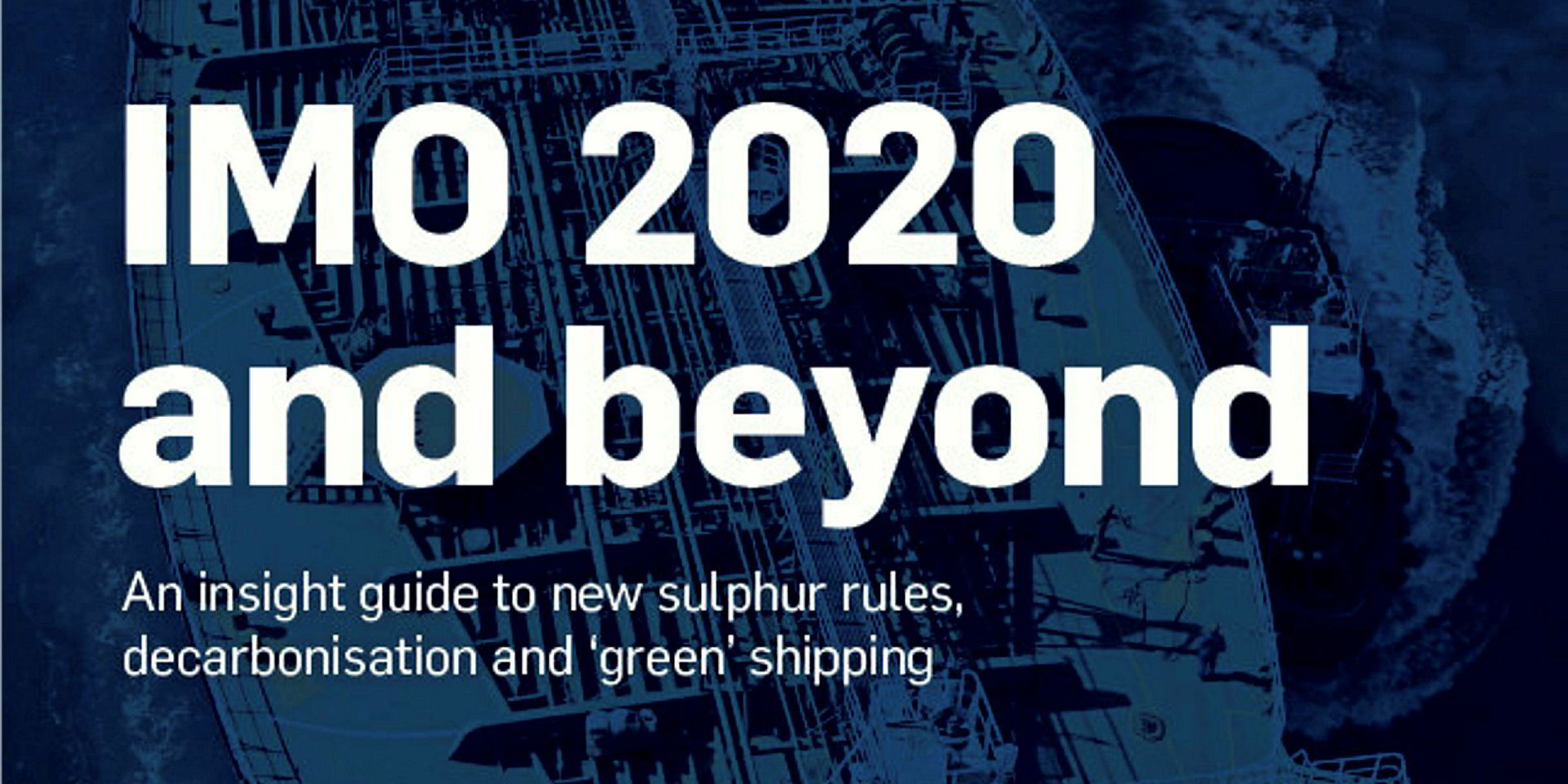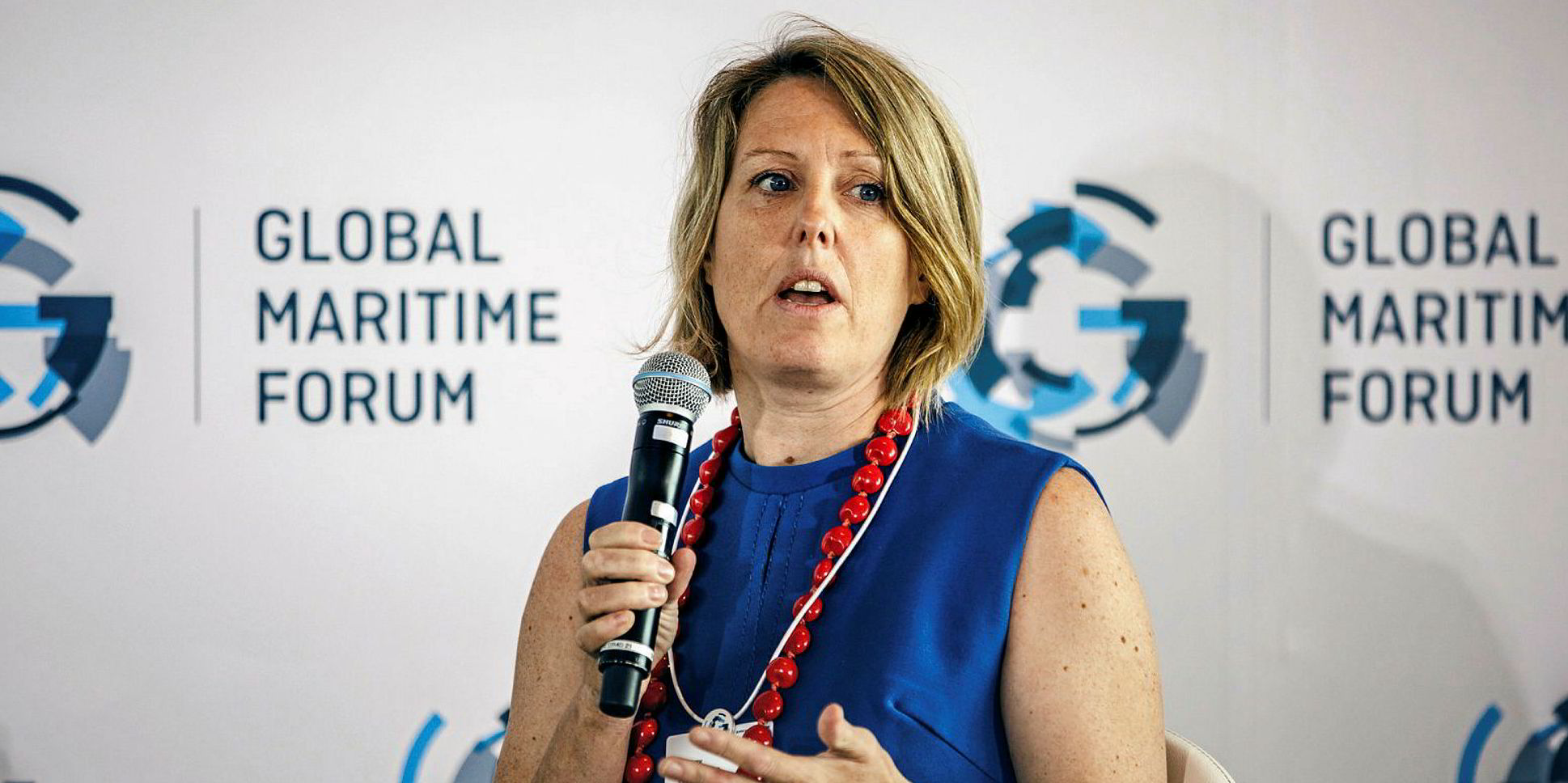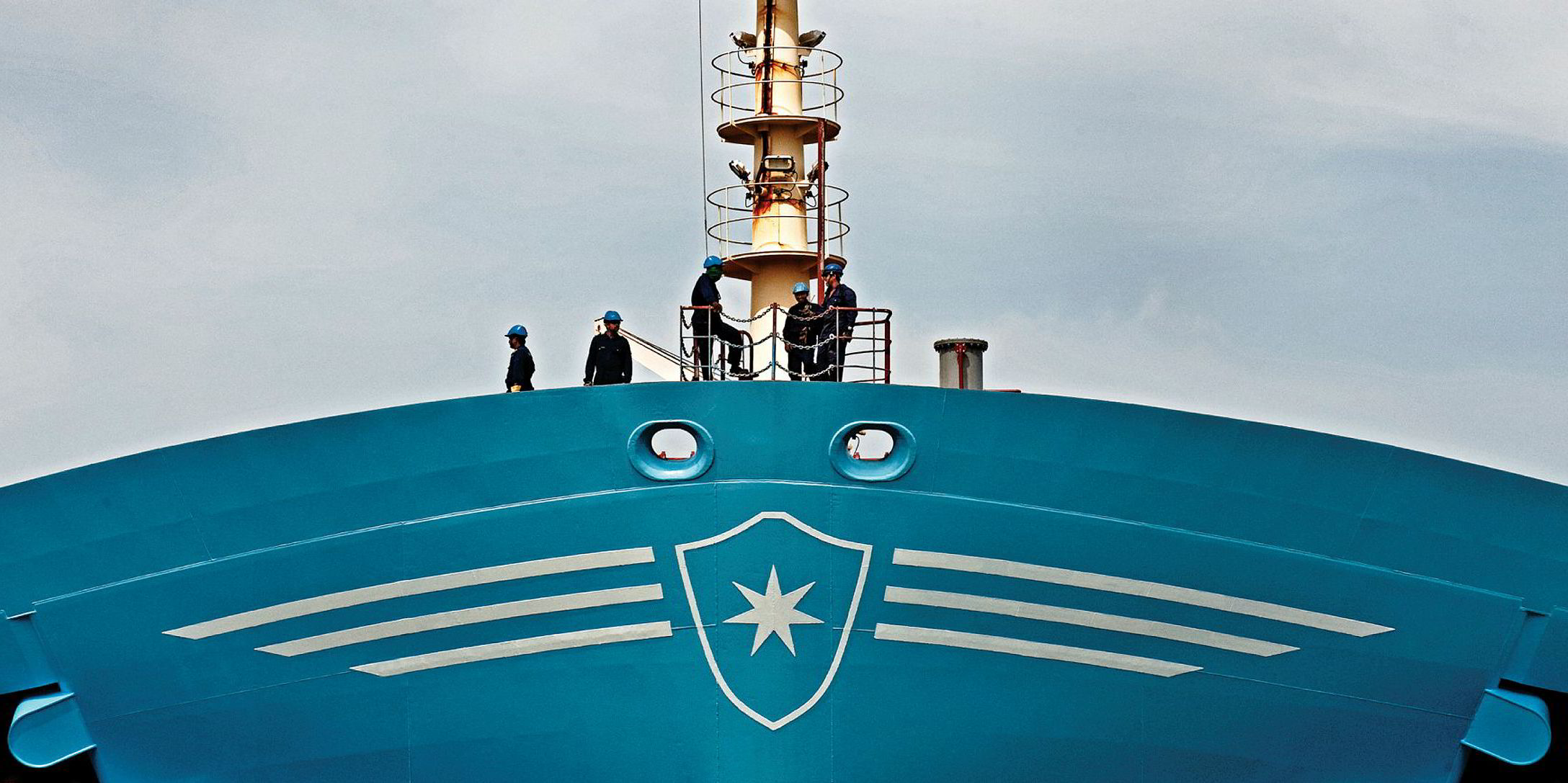One of Asia’s most influential shipowners has swung his weight behind a global carbon tax on pollution from ships to help drive the switch to renewable fuels.
BW Group chairman Andreas Sohmen-Pao took the lead in helping shape a detailed plan at today’s Global Maritime Forum in Singapore where he said: “Let’s not be on the wrong side of history on this one.”
An informal working group of around 30 high-profile industry figures suggested a carbon tax – or levy, as some prefer to call it – should start at $10 per tonne of CO2 emitted, rising to $50 to $75 per tonne by 2030.
With shipping generating around 800m tonnes of CO2 annually the tax would raise between $8bn and $70bn a year to spend on fuel and technology research and support for developing nations.
With each tonne of bunker fuel generating about three tonnes of carbon those figures would add between $30 and $225 to each tonne of fuel.
“The clear consensus in our group was yes, it’s coming and we should shape it,” the BW Group chairman told the forum’s final plenary session. “[The] IMO has set the trajectory, politicians are demanding it, this train is leaving the station."
In a clear nod to critics of a carbon tax, among them a number of prominent Greek shipowners, he said: “For those of you who like to think defensively, we can prevent a badly designed outcome from being imposed by shaping it ourselves.”
And there was encouragement for northern European and Scandinavian owners who have supported the idea for several years.
For those of you who like to think positively, we have an opportunity to reshape the industry for the future to create new commercial opportunities and to prevent a human calamity [of climate change]
Andreas Sohmen-Pao
“For those of you who like to think positively we have an opportunity to reshape the industry for the future to create new commercial opportunities and to prevent a human calamity” of climate change, he said.
The working group – which was the biggest at this year’s forum – included many of shipping’s household names from major shipowners, global charterers, big banks, P&I clubs to class societies, although their identities remain private under the Chatham House rule.
Sohmen-Pao's presentation of the plan appeared to have broad support from the more than 200 senior shipping industry figures present.
John Platsidakis, director of major Greek shipowner the Angelicoussis Group and honorary chairman of Intercargo, told TradeWinds afterwards: “This is a very sound idea, which, speaking personally, I have backed previously. We should pursue the matter very seriously. Most importantly it is not an ETS [emissions trading scheme] which would be very bad.”
Jan Dieleman, president of Cargill Ocean Transport, which operates around 670 ships, said: “We really like this idea. And I particularly like the idea to use existing industry infrastructure to be part of the solution.”
A carbon levy is intended to help level-up the relatively cheap price of fossil fuels towards the currently higher price of renewables to encourage the development and uptake of new energy sources.
Such a concept is well-proven concept on land but is untested in maritime where there are no credible non-fossil fuel alternatives yet for deep sea shipping, although development of hydrogen, ammonia and bio-fuels is accelerating.
The informal plan developed today is one of the Global Maritime Forum’s work streams, a process which last year saw the seeds sown of what became the Poseidon Principles of sustainable ship finance, the Getting to Zero Coalition and the Together in Safety initiative.
Sohmen-Pao said the next steps should be to form an industry coalition to “put wind in the sails” of existing shipowner organisations that have been considering proposing such a scheme to help carry the idea forward to IMO.
“I was very encouraged that our group was not saying ‘It’s not our problem’ and just blaming individual consumers, or saying governments can solve it, but saying 'We have a responsibility as an industry to do something'.”
The suggested tax level was based on an assessment of balancing the need for a bunker price hike sharp enough to incentivise a change in purchasing but not all the way to equal the very high cost of ammonia production.

Check out TradeWinds Knowledge http://bit.ly/35g4KZ1, our new research project on IMO 2020 and decarbonisation
The UN’s landmark 2015 Paris Agreement on climate change suggested a levy needed to least $40 to $80 per tonne of CO2 by 2020 and $50 to $100 per tonne by 2030, while the International Monetary fund has suggested $75 by 2030.
Sohmen-Pao gave an example of a tax of $33 per tonne of CO2 would add just 0.2 US cents to the pump price of a litre of fuel on crude that was shipped from the Middle East Gulf to Singapore for refining before shipment back to Europe for sale.
Delivery and enforcement of the levy could be through existing mechanisms at IMO, which are supported by classification societies.
“We can use the existing IMO data collection system to ensure compliance because we know what bunkers people are buying, and it is currently verified by class so it has an objective body looking at it,” Sohmen-Pao said.
Further, P&I clubs could act as collection mechanism since they already issue certificates of compliance.
Distribution of the funds should be overseen by a separate body run under the aegis of the IMO but with its own governance system and broad stakeholder oversight.
Sohmen-Pao suggested the fund should have a statement of objectives that “reads something like the following:
“The Maritime Green Fund will accelerate decarbonisation in shipping through investment in technology and design of new propulsion systems, alternative fuels, and scaling and infrastructure to deliver these fuels, while taking into consideration the impact on trade and developing states.”







